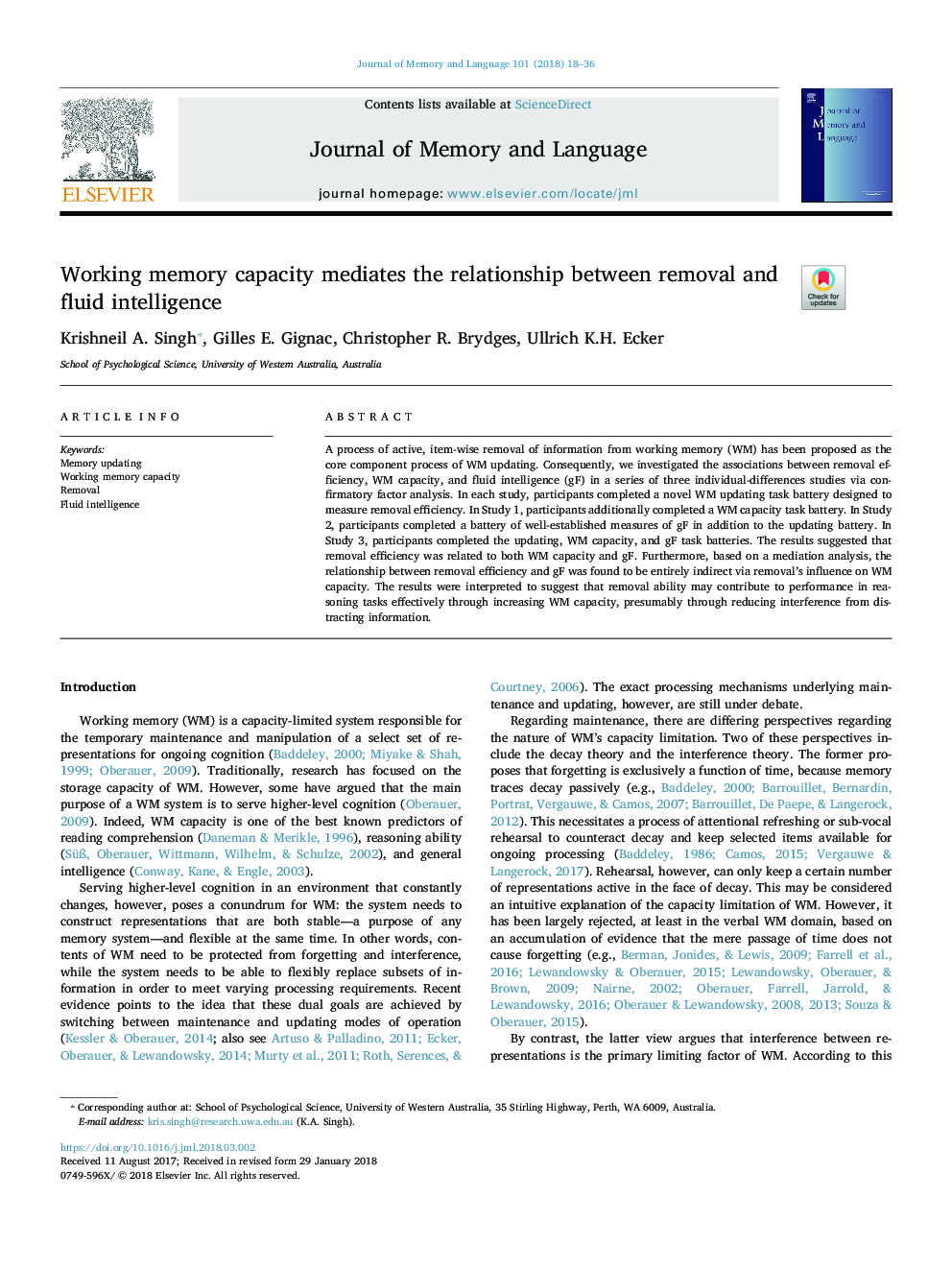| کد مقاله | کد نشریه | سال انتشار | مقاله انگلیسی | نسخه تمام متن |
|---|---|---|---|---|
| 7296798 | 1474618 | 2018 | 19 صفحه PDF | دانلود رایگان |
عنوان انگلیسی مقاله ISI
Working memory capacity mediates the relationship between removal and fluid intelligence
ترجمه فارسی عنوان
ظرفیت حافظه کاری میان ارتباط بین حذف و هوش سیال را میانجی می کند
دانلود مقاله + سفارش ترجمه
دانلود مقاله ISI انگلیسی
رایگان برای ایرانیان
کلمات کلیدی
به روز رسانی حافظه، ظرفیت حافظه کاری، حذف، هوش مایع
موضوعات مرتبط
علوم زیستی و بیوفناوری
علم عصب شناسی
علوم اعصاب شناختی
چکیده انگلیسی
A process of active, item-wise removal of information from working memory (WM) has been proposed as the core component process of WM updating. Consequently, we investigated the associations between removal efficiency, WM capacity, and fluid intelligence (gF) in a series of three individual-differences studies via confirmatory factor analysis. In each study, participants completed a novel WM updating task battery designed to measure removal efficiency. In Study 1, participants additionally completed a WM capacity task battery. In Study 2, participants completed a battery of well-established measures of gF in addition to the updating battery. In Study 3, participants completed the updating, WM capacity, and gF task batteries. The results suggested that removal efficiency was related to both WM capacity and gF. Furthermore, based on a mediation analysis, the relationship between removal efficiency and gF was found to be entirely indirect via removal's influence on WM capacity. The results were interpreted to suggest that removal ability may contribute to performance in reasoning tasks effectively through increasing WM capacity, presumably through reducing interference from distracting information.
ناشر
Database: Elsevier - ScienceDirect (ساینس دایرکت)
Journal: Journal of Memory and Language - Volume 101, August 2018, Pages 18-36
Journal: Journal of Memory and Language - Volume 101, August 2018, Pages 18-36
نویسندگان
Krishneil A. Singh, Gilles E. Gignac, Christopher R. Brydges, Ullrich K.H. Ecker,
